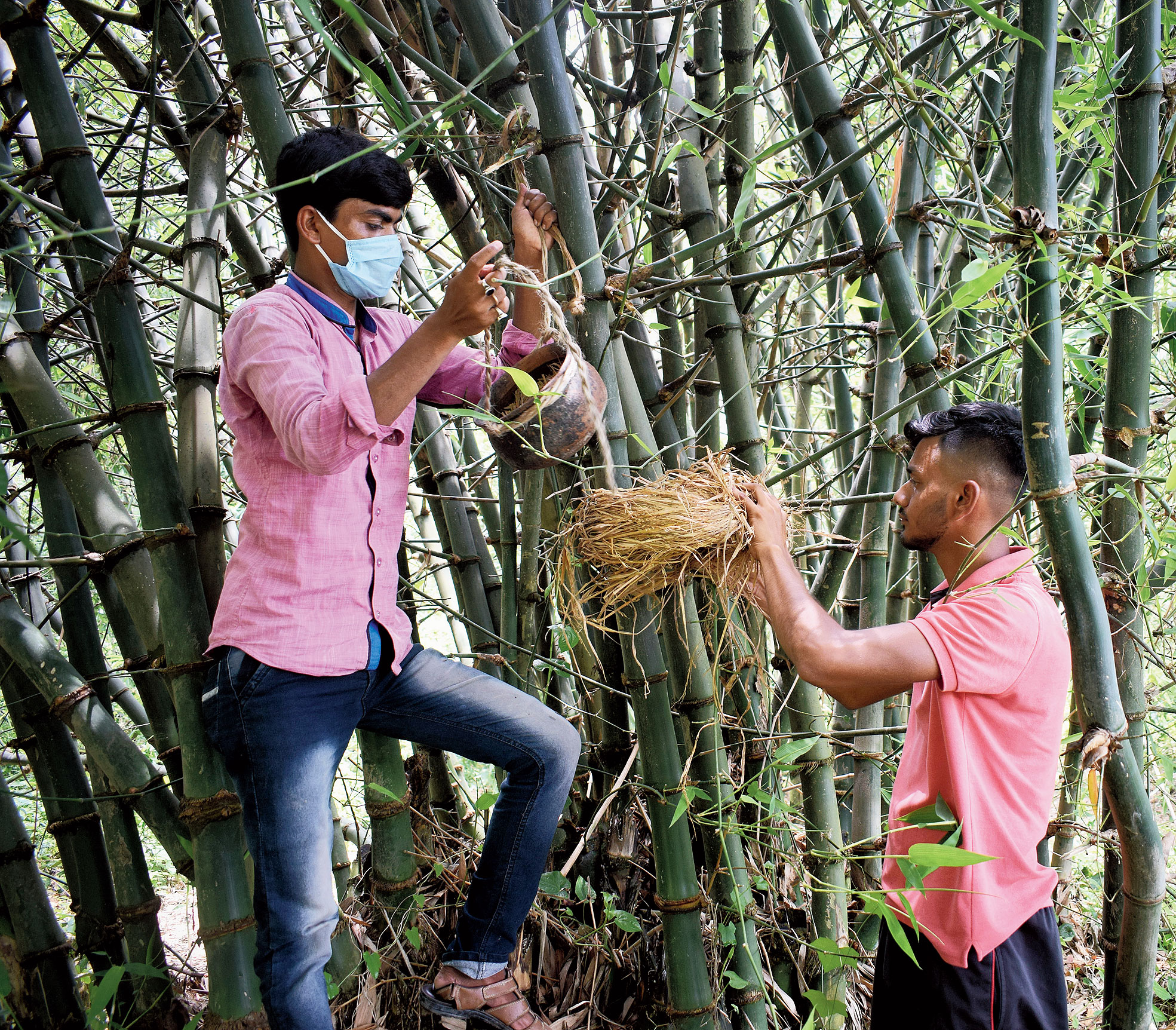Birds that have lost their homes to Cyclone Amphan can fly to new, manmade nests.
A group of 18 students from Santipur, Nadia district, have started putting new nests on trees that survived the furious storm on May 20.
The students — from Class XI right up to the university level — have formed Prayas, a nature care organisation, to set up 1,000 artificial nests made of natural materials such as hay, grass, coconut and jute fibres in earthen pots to encourage birds to reside and breed.
On Tuesday, Team Prayas visited Sutragarh Char and Ramnagar Char where they installed at least 30 nests on a host of trees.
Prayas member Prodyut Mahalder, a final-year BEd student of a private college, said: “Cyclone Amphan has affected birds in a big way. Many birds lost their nests and eggs as a large number of trees were uprooted or had their branches broken. So we decided to make nests and put them on trees for the safety of the birds.”
Prodyut, a bird-lover, said this was the right time for this initiative as it was breeding time for various varieties of birds. He added that in an attempt to woo the birds, Prayas members were trying their best to make the nests as natural as possible by using materials that birds themselves do such as twigs and grass.
Prodyut said that all Prayas members were from Santipur but some studied in Kalyani University.
Pabitra Pramanik, another member of Prayas and a BA second-year student of Santipur College, said they had examined the samples of nests made by birds. “We are trying to weave the nests like they (the birds) would have, using eco-friendly items. At the same time, we are using earthen pots as support. Our nests are stronger,” Pabitra said.
Each nest costs Rs 30. Students raised funds through personal donations and contributions from nature lovers to make 1,000 nests so far.
An official of the state forest and wildlife department welcomed this unique initiative.
“The students have taken up a great project. If birds can’t breed, a generation of many local birds like the sparrow and mynah, whose numbers have already dwindled, will be near extinction,” an officer of the state forest department said.
Bird watcher Dipanjan Biswas from Santipur lauded the initiative. But he also pointed out that manmade nests would not lure some species of birds who liked to make nests with their “distinctive signature”.










